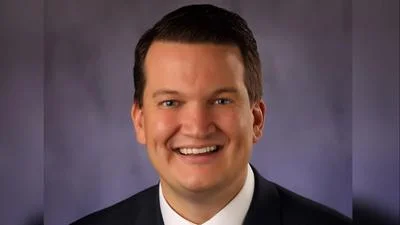Illinois lawmakers are considering a multibillion-dollar tax hike that the Illinois Policy Institute says may worsen the state’s already weakened economy.
In a report published on its website Jan. 17, the organization claims that “hitting residents and businesses when they’re struggling risks sending a faltering economy into a tailspin.”
According to the report, the Illinois Senate’s budget plan, which is being spearheaded by Senate President John Cullerton and Senate Minority Leader Christine Radogno, would raise taxes an additional $5 billion dollars; includes $7 billion dollars in borrowing; and a $200 million dollar bailout of CPS. This comes at a difficult time for the state where residents face the highest tax burden in the nation.
Projections for Illinois are similarly bleak. The December 2016 monthly briefing from the Commission on Government Forecasting and Accountability (COGFA) included some dismal numbers, including lower corporate tax collections, lower personal tax revenue and lackluster performance of sales tax.
In summary, the COGFA report noted that the state’s economy was not performing as well as economists and residents would like.
“To summarize, to date the state has experienced across-the-board revenue weakness,” according to the report.
The numbers speak for themselves: COGFA reported that corporate income tax revenue for the first six months of fiscal year 2017 is down $386 million compared to the same period in fiscal year 2016. Sales tax collections are up, but only by $45 million -- which doesn’t come close to making up the difference.
Income taxes paid by individuals are also off by $189 million, and state revenues are down 5 percent year to date. According to Illinois Policy, taking into account all state revenues, the numbers are still down nearly 7 percent year to date.
The Illinois Policy report blamed excessive regulations, a pension crisis and the nation’s highest property taxes as the main reasons for the economic hardship. It also noted the business owner’s tax burden is larger than in other business climates, which -- when coupled with workers’ compensation costs and a loss of manufacturing jobs -- serves to further damage the states fiduciary well-being.
Illinois Policy has put forward several ideas about what exactly the current budget proposal would mean for the state, and why, in essence, a move to raise taxes could be disastrous. According to Illinois Policy, the proposed budget only provides for the short-term revenue needs of the state, and will lead to economic and population losses in the long term.
One concern for the group is out-migration. It reported that the state has already lost more than 1.2 million residents since 2000, which has cost Illinois a hefty $40 billion in taxable income. The suggestion here is that tax hikes will accelerate the rate at which people leave the state, thus creating an even bigger tax revenue problem.
Illinois Policy has already reported that Illinois residents are subject to one of the highest tax burdens in the nation, along with higher property taxes than anyone else.
Moreover, the group reported, the state is failing to create new jobs and is losing the manufacturing base that for years has provided for the state economy. The fear is that a raise in taxes without a concentrated reform effort will leave little enticement for companies to remain in Illinois.
Finally, Illinois Policy warned that the plan's "quick fix" of higher tax revenues will inhibit important reforms that the state needs to remain viable. The group named property tax, retirement plans, workers’ compensation, Medicaid and collective bargaining as areas in need of desperate reform.
Illinois Policy is an independent organization that describes itself as “generating public policy solutions aimed at promoting personal freedom and prosperity in Illinois.”




 Alerts Sign-up
Alerts Sign-up